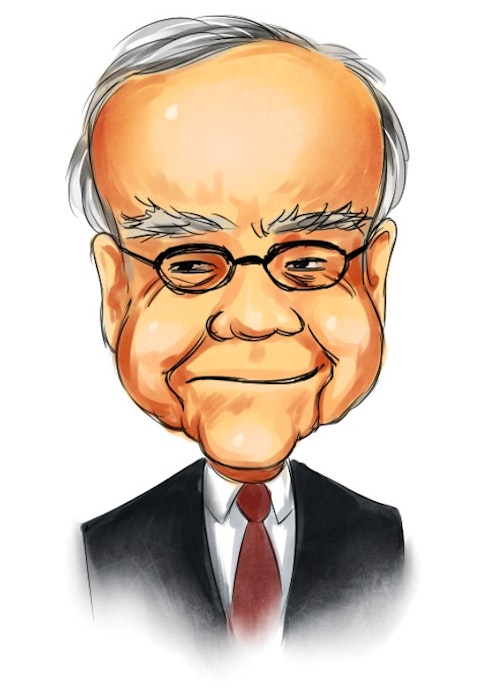Warren Buffett knew 9 fund managers who followed value investing approach would beat the market. In 1984, he gave a speech arguing that the Efficient Market Hypothesis is bogus. He listed 9 fund managers who always bought the business -not the stock- and performed much better than did the market.

He claimed he didn’t pick these people because they already had an outstanding track record. He said he selected these people years ago based upon their framework for investment decision-making. Of course finance professors didn’t believe him, and many questioned his motivation. Warren Buffett was arguing that markets were inefficient, whereas professors were arguing they were.
Well, we know one way to settle this.
We don’t really know when exactly Warren Buffett initially picked these 9 fund managers. But we know that he picked them by 1984. We can compare their performance to index funds’ performance after 1984 and find out whether these guys really can beat the market. Here are the 9 fund managers Warren Buffett selected:
1. Walter J. Schloss: Between 1956 and 1984, Walter J. Schloss returned 16.1% per year after expenses whereas the S&P 500 returned 8.4%. Schloss accepted money from investors until 2000. His nearly five decade performance was 15.3% vs. 10% for the S&P 500. Walter J. Schloss managed to beat the S&P 500 by around 1 percentage points after 1984. Warren Buffett was successful in this pick.
2. Tweedy, Browne Inc.: Between 1968 and 1983, Tweedy Browne returned 16% per year after expenses whereas the S&P 500 returned 7%. Tweedy Browne’s recent performance isn’t as robust as its performance under Tom Knapp and Ed Anderson. Since 1993, Tweedy Browne value fund returned 8.73% per year after expenses vs. 8.35% for the S&P 500. Nothing spectacular, but still beats the market.
3. Warren Buffett: Between 1957 and 1969, Buffett’s hedge fund returned 23.8% after expenses vs. 7.4% for the DJIA. After 1983, Warren Buffett managed to beat the market by more than 10% annually after adjusting for size, value and momentum effects. Since 2000, Warren Buffett managed to beat the market by 6 percentage points annually, but his alpha is close to zero (see Warren Buffett’s Alpha). Warren Buffett is one of the richest people on the face of this planet simply because he managed to beat the market.
4. Sequoia Fund: Bill Ruane managed to beat the market by 7.2% per year after expenses between 1970 and 1983. Bill Ruane beat the market by more than 2% after 1983 until his death in 2005. The excess returns are not as high as 7% per year but still a respectable 2 percentage points per year. Warren Buffett was successful in this pick too.
5. Charles Munger: Between 1962 and 1975, Charlie Munger beat the DJIA by 8.7 percentage points per year. Then, he went to Berkshire Hathaway, so we excluded him from the analysis.
6. Rick Guerin (Pacific Partners Ltd.): Rick Guerin returned 23.6% vs. S&P 500’s 7.8% between 1965 and 1983. We couldn’t find his returns for the post-1983 period. However, in this article the author says that Rick Guerin underperformed the market for six years in a row. So we’ll assume he couldn’t beat the market after 1983. Warren Buffett picked the wrong guy this time.
7. Stan Perlmeter: Stan Perlmeter returned 19% vs. the DJIA’s 7% return between 1965 and 1983. We couldn’t find any returns for Stan Perlmeter for the post-1983 period. Perlmeter Investments was one of the victims of Bernie Madoff. So any returns would have been contaminated by Madoff effect anyway. We’ll assume Stan Perlmeter couldn’t beat the market after 1983. Stan Perlmeter picked the wrong guy (Madoff) and Warren Buffett picked Stan.
8. Washington Post Master Trust: This pension fund has to invest 25% of assets in fixed interest instruments. The stock investments were placed with value-oriented managers. We couldn’t find post-1983 returns for this fund. As a result, we will exclude it from our analysis. It’s performance is probably no different than the next pension fund’s.
9. FMC Corporation Pension Fund: This fund actually doesn’t pick stocks, but strictly invests with managers who have a value approach. The fund managed to beat the S&P 500 index by 1.5 percentage points between 1975 and 1983. Since it invests in value stocks, it probably beat the market since 1983. For the 10 years ending 2009, FMC’s Pension Fund returned 6.77% vs. -0.95% for the S&P 500. This one goes to Warren Buffett too.
Overall Warren Buffett beats Eugene Fama and the Efficient Market Hypothesis crowd by 5-2. He was advocating value investing way before Fama came up with the lame excuse of “value effect” being a risk factor and that’s why value investing outperforms the market. Too bad he didn’t provide this explanation until 10 years after Buffett’s defense of value investing. Clueless Efficient Markets professors were dismissing value investing in 1984.



